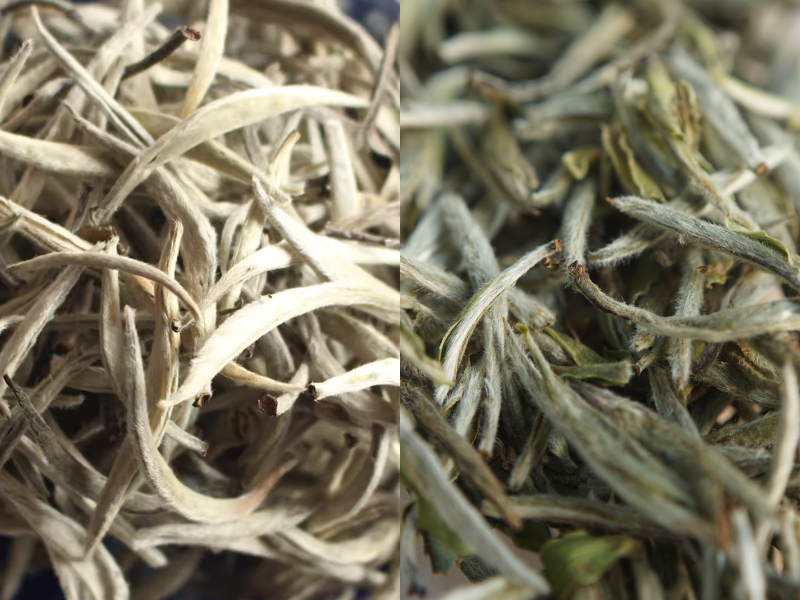
What are the differences between Yunnan white tea and Fujian white tea?
1. Different Growing Environments
Tea trees in Yunnan mostly grow at an average altitude of 1,700 meters, with a small number below 1,000 meters. Yunnan's climate belongs to the tropical and subtropical monsoon climate, characterized by a prominent three-dimensional climate. It features lush vegetation, towering mountains, and mist-shrouded peaks. With abundant year-round sunshine, plentiful rainfall, and diverse ecosystems, it is an ideal place for tea to grow.

The significant temperature difference between day and night due to high altitude enriches the internal substances of the tea leaves over time. After careful storage, the resulting flavor is even more unique and captivating. Yunnan’s distinct wet and dry seasons provide excellent natural conditions for sun-wilting and drying of white tea, preserving its original taste to the maximum extent. Moreover, the tea-growing areas in Yunnan consist mostly of red soil, yellow soil, laterite, and brick-red soil, and the varying soil types contribute to differences in the tea’s flavor.

Fujian province, bordered by mountains and the sea, has a subtropical maritime monsoon climate with noticeable mountainous characteristics. The main tea production areas are at an altitude of about 500 meters, with a warm climate, abundant rainfall, and often misty mountains with diffuse light. The soil is predominantly acidic red and yellow soil, which is suitable for the growth of tea trees.
2. Different Tea Tree Varieties
Yunnan white tea uses the large-leaf arbor tea trees native to Yunnan as its raw material.
Fujian white tea comes from the medium to small-leaf shrub tea varieties, which include Fuding Dabai ("Big White"), Narcissus White, and Xiaobai ("Small White").
3. Different Flavors
The flavor profile of Yunnan white tea is characterized by an intense honey-like aroma and a particularly strong taste, which is an advantage in terms of its drinking value. White tea made from Yunnan's large arbor tea leaves, processed through withering in high-altitude mountain breezes and 100% sun drying, has higher levels of substances like water-soluble compounds, glycosides, and pectin compared to Fujian white tea.

With its richer internal composition, Yunnan white tea offers a fuller and more robust taste, making it stand out in quality compared to Fujian white tea. Its enhanced richness and steeping endurance embody its varietal advantages. Additionally, Yunnan white tea exudes a more natural wild floral fragrance, with a refreshing taste and more profound lingering notes.

Fujian white tea has a more pronounced aroma, typically characterized by fine silver needle-like hairs emitting milky and floral notes. Its floral aroma is more distinct than that of Yunnan white tea, with tender buds and leaves covered in white fuzz. The taste is lighter, clean, and pleasantly sweet, with a smooth finish. However, it is slightly less durable in steeping compared to Yunnan white tea.
